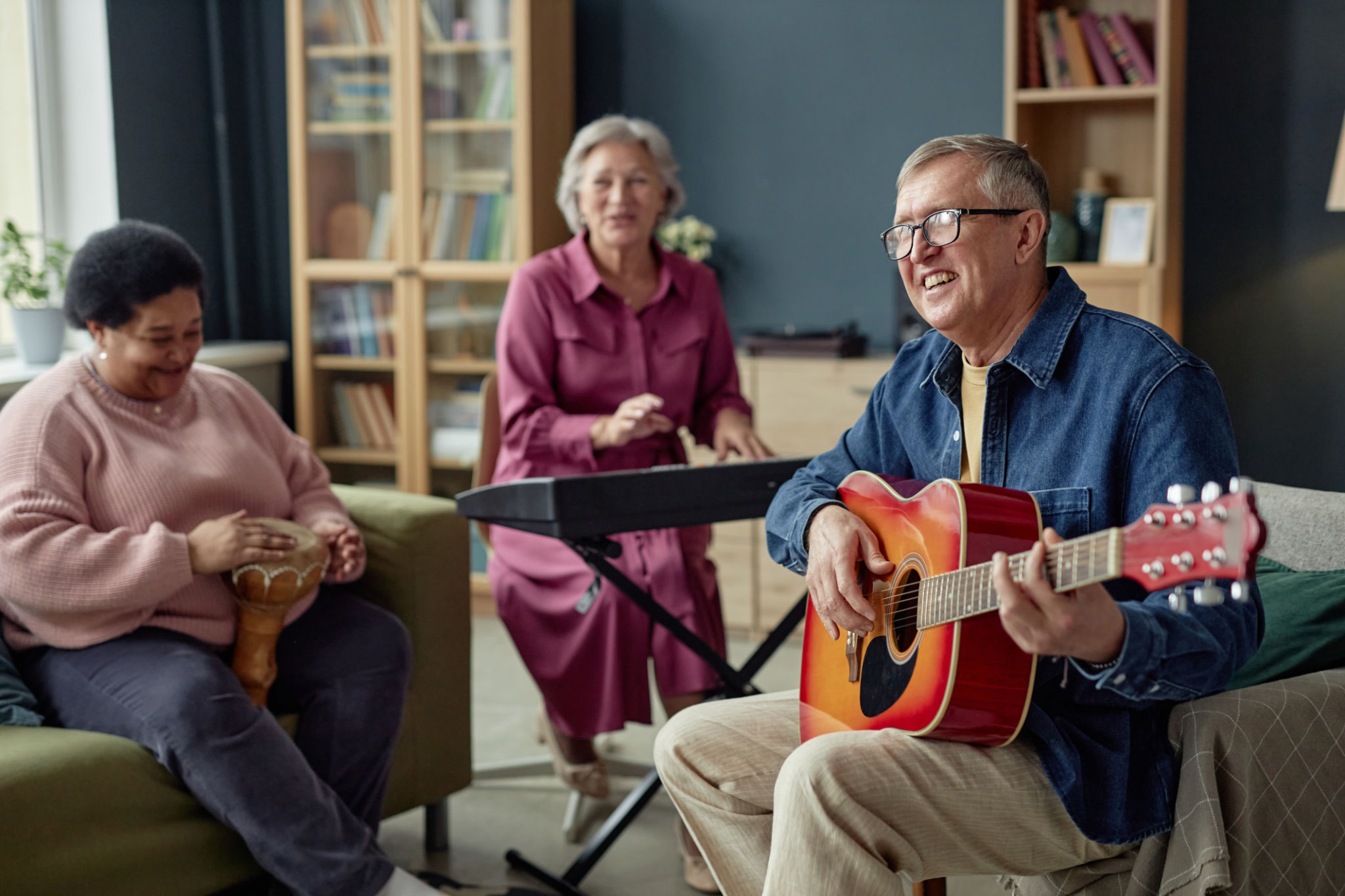The Benefits of Group Music Classes: A Social Approach to Learning
Introduction to Group Music Classes
Music has long been a universal language that brings people together, transcending cultural and linguistic boundaries. Group music classes are becoming increasingly popular as they offer a unique way to learn and enjoy music collaboratively. These classes provide a social approach to learning that benefits individuals in ways that solo lessons may not.
Building Social Connections
One of the primary benefits of group music classes is the opportunity to build social connections. In a group setting, students interact with one another, fostering a sense of community and belonging. These interactions can lead to lifelong friendships and networks built around a shared interest in music.

Learning in a group also encourages cooperation and teamwork. Students must work together to create harmonious music, which can help develop important social skills like communication, patience, and empathy.
Enhanced Learning Experience
Group music classes offer an enhanced learning experience through shared knowledge and diverse perspectives. Students can learn from each other's strengths and weaknesses, gaining insights they might not encounter in a one-on-one setting. This collective learning environment can accelerate progress and deepen understanding.
Moreover, group settings often feature varied teaching methods, including peer feedback and collaborative problem-solving, which can cater to different learning styles and make the learning process more engaging and effective.

Increased Motivation and Accountability
Being part of a group can significantly boost motivation. Knowing that others are counting on you to play your part can drive you to practice more consistently. The sense of accountability that comes with group participation encourages students to stay committed to their musical goals.
Additionally, the presence of peers who share similar interests creates a supportive environment where students can celebrate each other's successes and encourage one another through challenges.
Boosting Confidence and Performance Skills
Performing in front of others can be intimidating, but group music classes provide a safe space to practice performance skills. Regularly playing with and for peers helps students build confidence in their abilities and reduces performance anxiety over time.

The supportive atmosphere of a group class allows students to take risks and experiment with their musical expression, leading to greater self-assurance both on stage and off.
Affordability and Accessibility
Group music classes are often more affordable than private lessons, making them accessible to a wider range of students. This cost-effectiveness allows more people to benefit from music education without the financial burden associated with individual instruction.
Moreover, group classes are typically offered at various skill levels, ensuring that everyone from beginners to advanced musicians can find a class that suits their needs.
Conclusion
Group music classes provide a rich, social approach to learning that extends beyond musical proficiency. By fostering social connections, enhancing the learning experience, boosting motivation, building confidence, and offering affordability, these classes offer numerous benefits that make them an appealing option for aspiring musicians of all ages.